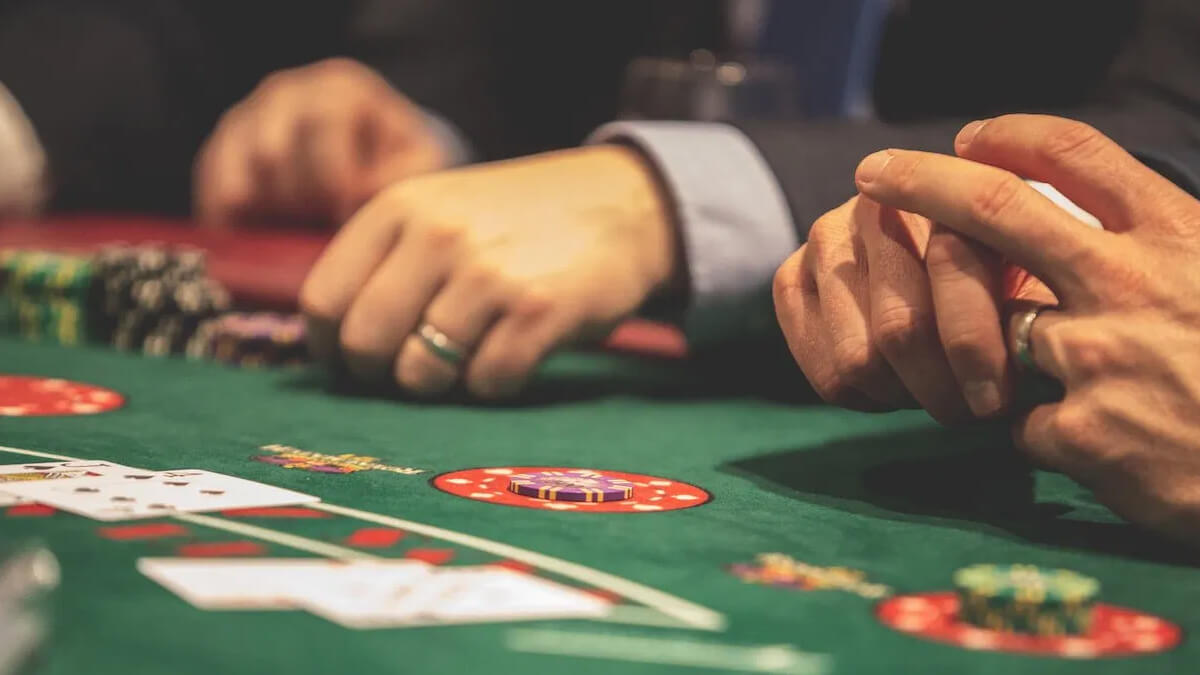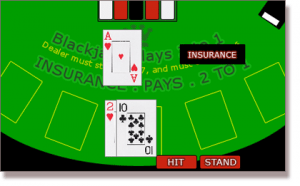Insurance Blackjack Payout
Anyone who’s read a reasonably good post about basic strategy in blackjack knows that you should never take insurance. It’s a sucker bet.
The only other payout is on an insurance bet which is an optional side bet that the dealer has Blackjack. If you decide to take insurance and the dealer does in fact have Blackjack, you will receive a two-to-one payout. For example, $5 bet x 2 = $10 payout. Jan 26, 2020 Insurance payouts on Blackjack Early Payout are 2:1. This game is a unique variant of Blackjack Surrender, where players can cash in before the dealer has completed their hand. Experts recommend using basic blackjack strategy with early payout. It's a better way to cash in your hand when you don't want to see it through to completion.
Blackjack Perfect Pairs is a side bet that has grown in popularity to the extent that it lends its name to blackjack games. Find out how to play and the payout odds. To win the blackjack payout of 3:2, your hand must consist an Ace and a face-card or a ten card. Facecards have a value of 10 in blackjack Such card combination is referred to as natural 21 or blackjack. This means that if you have placed a hundred-dollar bet, you will be paid $150.
But sometimes casino dealers will confuse players by offering them “even money.” That’s just another way of offering insurance to the player.
The selling point of even money in blackjack is that you’re going to win no matter what. This post explains the fallacy behind thinking that insurance (or even money) is a good idea when playing blackjack.
How Even Money Works in Blackjack
Even money works when you’ve been dealt a natural, a two-card hand that totals 21. Such a hand is also called a blackjack, and it pays off at 3:2 in most games.
There’s one catch to having a natural. If the dealer also has a blackjack, it’s a push. When the dealer has an ace showing as the face-up card, you get the opportunity to place an insurance bet. They’ll often refer to this as taking “even money.”
Insurance Blackjack Payout Calculator
If you have $100 in action and agree to take even money, the dealer will pay you $100 and take your cards before looking at her hand to see if she has a blackjack, too.
This seems like a good idea. After all, if you turn down the even money, and the dealer flips over a blackjack, you lose your $100.
On the other hand, if you decline even money, you win $150 on your $100 bet. Which is the better deal?
It’s about how much you win or lose in the long run.
To really understand whether even money makes sense, you need to look at how often the dealer will win or lose and how much you’ll win on average every time.
Decisions and Consequences in This Blackjack Situation
Let’s simplify this for a minute. You have two choices. You can take even money and win $100. Or you can decline even money, winning either $150 or facing a push.
It should be obvious why declining even money makes sense, because when you push, you don’t lose any money. You just get your original bet returned to you.
How often will the dealer have a blackjack?
This varies based slightly on how many decks are in use, but for the sake of simplicity, let’s assume that the dealer will have a blackjack only 30% of the time (this is really close to the actual number). 70% of the time, you’ll win 3:2 on your bet.
Let’s play this situation out 100 times in a row.
- Player A takes even money, which means he wins $100 on all 100 hands, or $10,000.
- Player B declines even money, which means he wins $150 on 70 hands, or $10,500.
Obviously, declining even money results in more wins in the long run.
Insurance Blackjack Payout Payouts
What’s the Difference Between Even Money and Insurance?
Insurance is a side bet that the dealer has a 10 as the hole card. You can only place this bet when the dealer has an ace showing face-up, and the wager for this must always be half of the original wager size. If you bet $100, your insurance bet must always be $50.
If the dealer does have a blackjack, you get paid off at 2:1 for your insurance bet, which means it pays off at $100.
You don’t need to have a blackjack to place an insurance bet. You can take insurance with any total versus the dealer’s face-up card. If you have any total other than 21, you lose your original bet against the dealer.
But since insurance pays off at 2:1, you’ll wind up breaking even on that action.
So basically, even money is just an insurance bet that you can only make when you have a blackjack. When you take even money, though, you lose your opportunity to get the 3:2 payoff.

You don’t have to put up the additional bet, because the casino has just subtracted that $50 from your payoff for your hand.
Insurance is available any time the dealer has an ace showing, but even money is only available when the dealer has an ace showing and you have a blackjack.
There’s An Exception to Every Rule
Not every blackjack game in every casino offers 3:2 payouts for a blackjack. In some games in some casinos, the payout for a blackjack is only 6:5.
You should NEVER play in such a game, because it gives the house an edge almost 1.4% higher than it would have if it paid the standard amount.
But if you ignore that advice and choose to play in such a game, the even money bet suddenly makes sense.

Here’s why. You still have the 30% probability that the casino will have a blackjack. So, now, you’re looking at winning $120 approximately 70 times out of 100, or $8400.
But if you take even money, you’ll win $100 every time for $10,000 in winnings. In a 6:5 blackjack game, even money is a GREAT bet.
The problem is that it doesn’t come up often enough to make up for what it does to the house edge. A good blackjack game might have a house edge of around 0.4% if you play with perfect basic strategy.
Convert that to 1.8%, which is what the 6:5 payout does and, suddenly, that great game becomes pretty mediocre. And that 1.8% accounts for the even money proposition, too.
Conclusion

The basic blackjack strategy should inform your every decision in blackjack, but the correct basic strategy varies based on the rules in place.
The differences between insurance and even money and when it’s appropriate to place such a bet are great examples of this.
Do you ever take even money when it’s available at the casino? If so, do you think this post might have changed your mind about that?
Let me know what you think in the comments.